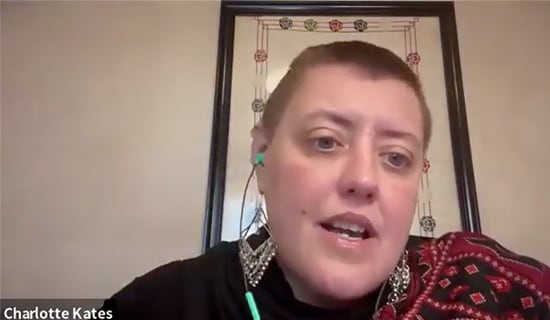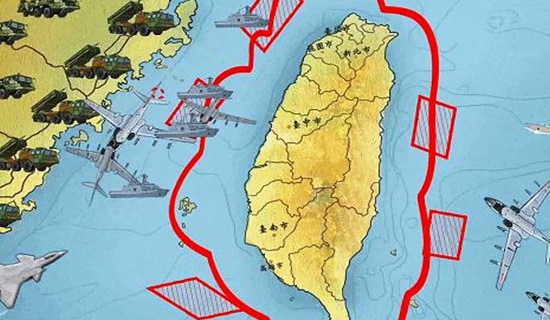The following are reactions to Russian President Vladimir Putin's order to withdraw Russian troops from Syria. The order was given during Putin's surprise visit to Syria on December 11.
During his speech in the Hmeymim base, Putin said: "Syria has been preserved as a sovereign and independent state. Refugees are returning to their homes. Favorable conditions have been created for a political settlement under the UN. The Russian Centre for the reconciliation of opposing sides in Syria continues to operate in line with international agreements.
"The two bases, in Tartous and Khmeimim, will continue to operate on a permanent basis. If the terrorists raise their heads again, we will deal unprecedented strikes unlike anything they have seen.
"In just over two years, the Russian Armed Forces and the Syrian Army have defeated the most combat-ready group of international terrorists. In this connection, I have decided to redeploy most of the Russian military contingent from the Syrian Arab Republic to Russia."[1]
During the visit, Putin also met Syrian President Bashar Al-Assad. After visiting Syria, Putin went to Egypt and Turkey.[2]

On December 11, Russian President Vladimir Putin visited the Khmeimim Air Base in Syria. (Source: Kremlin.ru)
Russian Intellectual Lukyanov: The Middle East Becomes A First Priority For Moscow
Fyodor Lukyanov, Editor-in-Chief of Russia in Global Affairs and Chairman of the Presidium of the Council on Foreign and Defense Policy, commented in the Russia in Global Affairs' Telegram Channel:
"The wrap up of the major Russian military operation in Syria, announced by President Putin at Hmeymim airbase, is no doubts a landmark event. Lots have been said and lots to follow regarding military and diplomatic successes. Even those, who, to put it mildly, are not Moscow sympathizers, are forced to admit the efficacy [of the operation] …
"In the beginning [of the operation] many were concerned with the lack of an 'exit strategy' and the possibility of getting bogged down in the Middle Eastern swamp. Yet, [for Russia, Syria] was not a repeat of Afghanistan 1979-89…
"Russian military-political accomplishments in the Middle East made Russia – quite unexpectedly for Moscow itself- into a most influential external power… The question is whether Moscow is able to assume a post-war burden as well as it assumed a wartime one.
"No other country has business and working relations with virtually all countries in the region, including mutual enemies such as Israel and Hamas, or Iran and Israel along with Saudi Arabia. This makes Russia an 'indispensable power' as the U.S. used to call itself…
"Anyway, from now on, the Middle East becomes a first priority for Moscow, which has to defend its new position [in the region]. Any diplomatic or political failure in the Middle East will not be just an unsuccessful operation, but a huge blow to the state's status. Moreover, the victory announcement in Syria marks the beginning of a new era. In the post-Soviet period, the main idea was to prove that it was premature to write us off. Now, we need to prove that we didn't return [to great power status] in vain."
(T.me/ru_global)
Military Expert Korotchenko: 'Russia Needs To Prevent Possible Provocations By The U.S.'
Military expert Igor Korotchenko: "S-400 in Hameymim and S-300 in Tartus should stay in place as a security element for the bases. Taking out those systems would be premature since Russia need to prevent possible provocations by the aviation of the U.S. and its coalition allies."
(Ria.ru, December 11, 2017)
Russian Analyst Sivkov: 'Syrians Are Fed Up With Democracy'
Konstantin Sivkov, vice-president of the Russian Academy for Geopolitical Problems, said: "The U.S. and other player are interested in taking control of Syria and they may start to destabilize the situation in the country. Currently, it is not an easy thing to do, since the major forces of the Syrian 'fifth column' are crushed and physically exterminated. It's impossible to assemble new [opposition] forces quickly. Thus, in the upcoming couple of years it will be quiet in Syria… The Syrians have had their fill with democracy. The Syrian people got a vaccine from liberalism. I think they won't take the bait a second time."
(Mk.ru, December 11, 2017)
RIA Columnist Mirzoyan: In Syria Russia Showed The Effective Limits Of American Power
Gevorg Mirzoyan, a columnist for the RIA news agency, wrote: "Russia wished to explain quite clearly to all [countries] in the Gulf and the Atlantic that the Kremlin was categorically against toppling legitimate governments through 'color' or 'spring revolutions. Moreover, Russia wanted to make it clear that it had the capacity to do so. As a result Russia saved not only the Syrian Arabic Republic. In Syria, Russia was able to put a halt to the 'Arab Spring' process, which led not countries' liberalization but rather to their radical Islamization or total destruction.
"Moreover, Russia has defended the international law, and thus it has demonstrated to the U.S. the effective limits of its capacity to destabilize the global system. Naturally, it has not been done for purely noble reasons only. Russia needed to 'cash in' its offer to the world. Currently, Russia is perceived by the regional countries [Egypt, Saudi Arabia, Qatar, Turkey and Iran] as an effective and not (as opposed to U.S.) as an arrogant security guarantor. The guarantor which is not trying to squeeze out the oil deposits of its clients, does not impose upon them with its perception of internal political order and honestly fulfills its commitments as long as the clients fulfill their own ones…
"Yet, Russia was unsuccessful in building a constructive Russian-American agenda. The Syrian campaign was perceived by many as a unique invitation extended to the U.S. to negotiate over a new world order, which is taking shape after the unipolar era has ended. Moscow positioned itself as a strong but a responsible player, which is always ready to set aside emotions and resentments on the basis of respectful behavior and consideration of mutual interests... Yet, the U.S. has not appreciated Moscow's actions and is continuing its confrontational course."
(Ria.ru, December 11, 2017)
Vladimir Dzhabarov, FSB (ret) general, First Deputy Chairman for International Affairs of the Council of Federation, said: "Russia has performed an heroic deed that saved the Middle Eastern region from terrorism".
Senator Kosachev: What Is Next? We Should Assist The Political Process
Head of Russia's Federation Council Foreign Affairs Committee, Senator Konstantin Kosachev, said: "What's next? Next, [we should] by all means assist the political process based on UNSC decisions, using all the mechanisms – Geneva, Astana, and, hopefully, Sochi".
(Facebook.com/profile.php?id=100002123135703, December 11, 2017)
The Russian newspaper Kommersant quotes a high level military source, saying that in the event that the conflict escalates or if the terrorists attempts to put together significant forces, the Russian military will not resort only to air strikes conducted by the remaining jets, it will also use high precision strikes to be conducted by Caspian fleet ships, i.e. the naval forces will use Kaliber cruise missiles.
(Kommersant.ru, December 12, 2017)
Russian Expert Shumilin: Putin's Announcement Of ISIS Defeat Is Important Only In The Context Of The Upcoming Presidential Elections
In an article published in Russian newspaper Vedomosti, titled "Putin goes to elections as a peacemaker", Alexander Shumilin, Director of the Center for the Analysis of Middle East Conflicts at the Institute of the U.S. and Canadian Studies in Moscow, said that announcing ISIS' total defeat is quite premature. Shumilin said: "Putin's announcement [of ISIS' defeat] is important only in the electoral context."
Shumilin also stressed that Moscow is betting on a diplomatic settlement and has pushed Assad to be more flexible. However, there are still problematic issues remaining between Turkey, Russia and Iran. Shumilin added: "Putin wants to quit elegantly, but the Iranians have no intention of leaving. Moreover, they consider any withdrawal treachery."
(Vedomosti.ru, December 11, 2017)
Director Of The Levada Center: 'The End Of Combat Actions Will Be Perceived With A Sigh Of Relief'
Lev Gudkov, director of the Levada Center, Russia's independent pollster, said: "Putin considers that it is very important to appear the peacemaker. The [Russian] people await that [the end of Russia's operation in Syria], they do not understand the rationale behind the operation in Syria. There were fears that Syria would become a second Afghanistan and that Russia may find itself on the threshold of WWIII. That’s why the end of combat actions will be perceived with relief."
(Vedomosti.ru, December 11, 2017)
[1] See MEMRI Special Dispatch N. 7277, Russia This Week – December 14, 2017, December 14, 2017.
[2] See MEMRI Special Dispatch N. 7277, Russia This Week – December 14, 2017, December 14, 2017.








